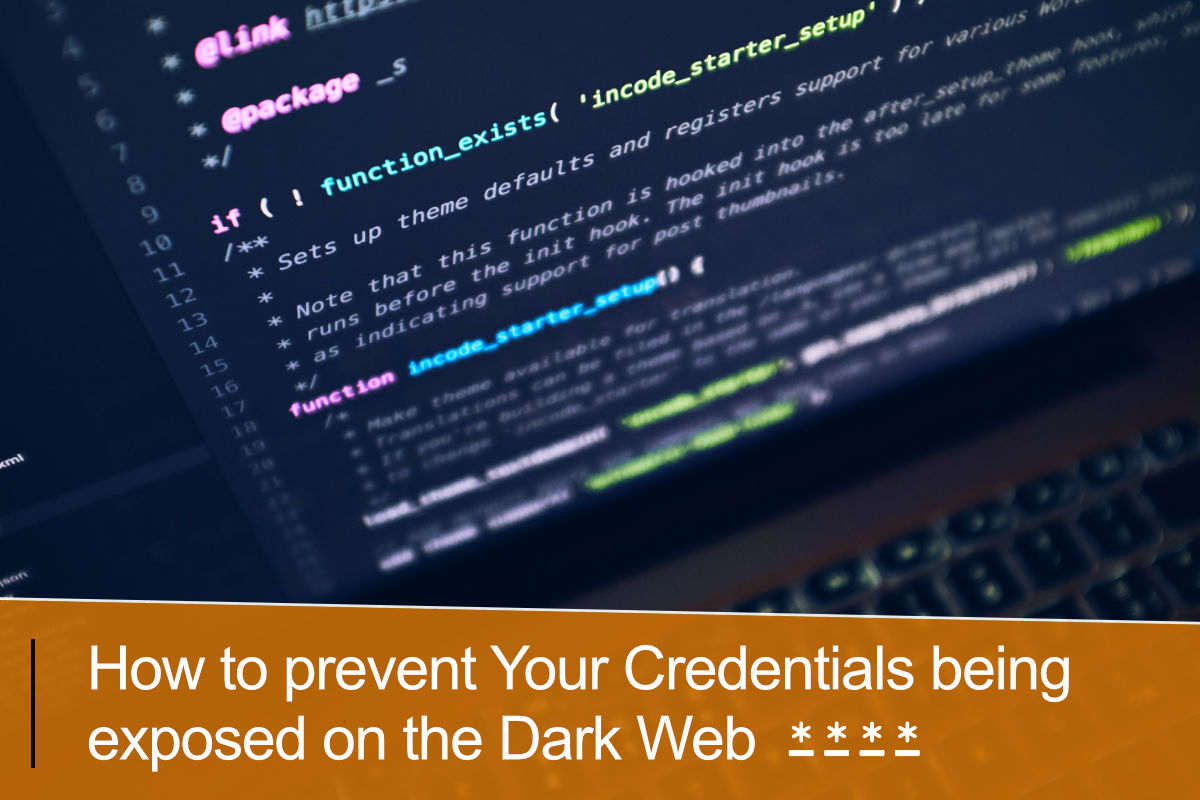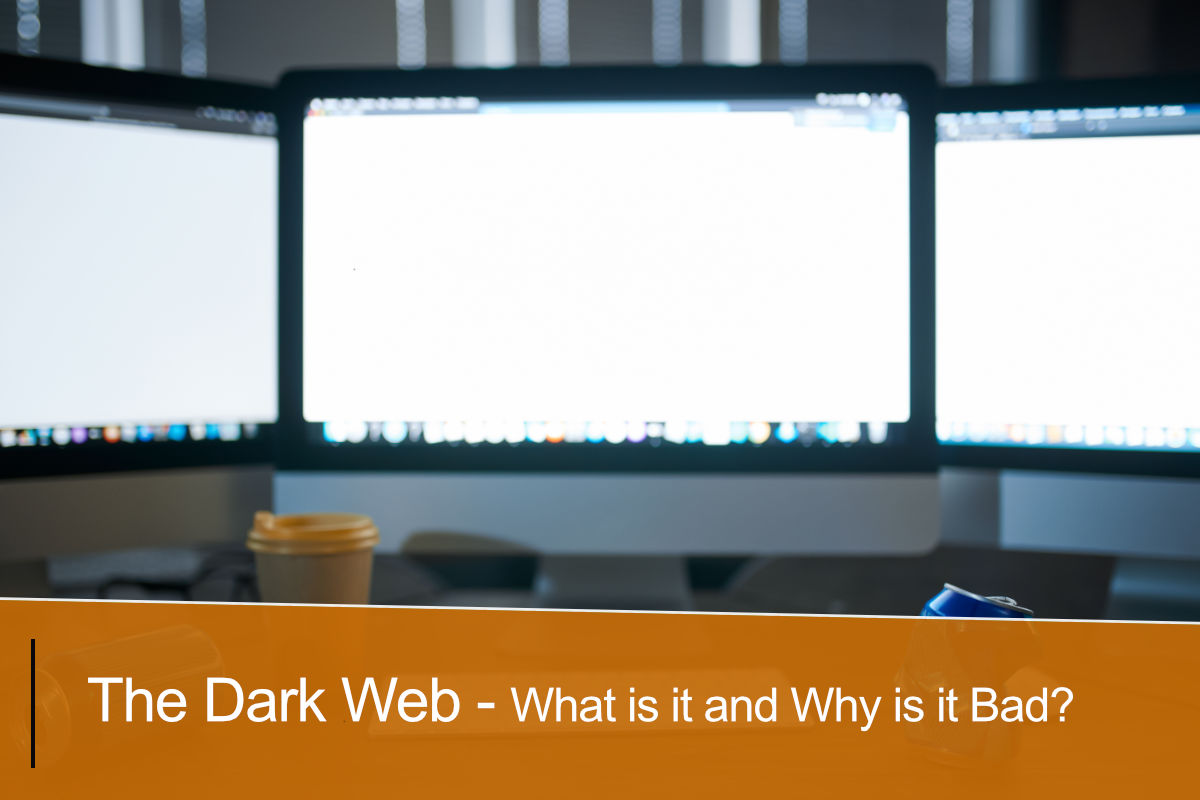
How To Prevent Your Credentials Being Exposed On The Dark Web
Quite predictably, having sensitive information like your credentials and private personal details leaked onto the Dark Web can be quite scary. But if you are well prepared, you can deal with these issues and minimise harmful consequences.
Here we will look at some essential precautions you need to take to ensure your credentials and personal information are secure online.
Pay attention to your passwords
Passwords are the most important security credentials that need to be kept safe and secure. However, people often don’t pay enough attention to their passwords and become careless with them.
For example, people often use the exact same password for every site they sign up for. It’s convenient and easy to remember! However, if one security breach occurs, then all your online accounts can be hacked.
Make sure you use strong, secure passwords. Remember to change your passwords regularly. Use password managers such as ZOHO Vault, Keeper, TrueKey, LastPass, and others to protect your passwords with strong encryption. You can also use MFA mechanisms for additional security.
Here are some more rules you should start following with respect to password protection
- Use longer passwords that include unique phrases and combinations of common words rather than commonly used ones.
- Make sure you have different passwords for each user account you use and the websites you visit. Don’t use the same password twice.
- Use password managers to generate complex long passwords and store them for you.
- Use 2-factor authentication
- Change your passwords regularly or immediately whenever you suspect a breach
Secured connections
To prevent unauthorized access to your company’s sensitive data, use a secure VPN connection to block unauthorized access to the network.
Avoid interacting with websites that aren’t secured. Make sure that the site has valid SSL certificates and comes from known sources.
Make sure you use end-to-end (or full) encryption when sharing sensitive information online.
Educate on safety awareness
Make sure your employees know about the importance of strong passwords and other security measures. If anyone uses your system, they must be aware of the security implications of their possible careless actions.
Education is also important for identifying suspicious activity and spotting cyber attacks. You should encourage employees to use strong passwords, understand phishing scams, and be aware of their personal social media accounts.
Be careful about what you share on the internet
There are multiple ways in which information could leak onto the Dark Web. Do not share your private information on any websites or online communities.
Here are some more tips that could help you be extra careful:
- Don’t give out any personal information on a public computer. Make sure to erase your password when logging into your accounts from a public computer. Also, log out properly and remove any credentials before handing it over.
- Never send your private information, banking credentials, and passwords to someone over email.
- Do not click on links or emails from unknown senders. Be wary of phishing scams and if you receive an email that looks suspicious, report it.
- Avoid posting your personal information on social media and make your accounts private.
- Keep your anti-virus and firewalls up to date
You can explore the Dark Web Safely
If you want to explore the Dark Web, there are a number of precautions you must take before doing so:
- Make sure you’re using a VPN
- Close all websites and delete all caches that could carry user account or personal information.
- Cover your webcam
- Turn off your location tracking
- Install and activate your antivirus software and scanner
- Install and setup a secure VPN connection
- Use overlay networks and set your network security settings to high-security configurations.
- You should check your system for any possible security issues such as IP leaks, domain name service (DNS) leaks, and WebRTC leaks.
- Make use of reliable browsers and tools to explore the Dark Web
Monitor the Dark Web for any information leaks
The sad truth is, it is likely that your information has already been leaked on the Dark Web. However, there is a good chance that someone is sitting on it before attempting an attack.
Your information could be passed to the Dark Web even if it’s not from any of your online interactions. If you’re worried that your credentials may have been exposed to the dark web, it’s best to check.
You can use any number of Dark Web scan services to check if your data has been leaked on the Dark Web. Have I Been Pwned, for example, be used completely free of charge.
Monitor the Dark Web regularly for any data compromises, and it would be wise to invest in a Dark Web monitoring tool.
What to do if your information is found on the Dark Web?
If you find out that your credentials have been leaked by someone else, you should immediately report the incident to your IT security team. They can then take the necessary steps to protect against potential cyber attacks.
Check your systems for any malware and viruses and strengthen the security systems immediately.
Make sure your bank and financial accounts are safe by checking them regularly for any unauthorized transactions and reporting them immediately. Reset your passwords and lock down your account. Contact the bank immediately. It is important to immediately report any fraudulent activity to avoid further damage.
Innovative, flexible & trusted
We at Techguard are your innovative, flexible, and trusted IT Managed Service Provider. Highly experienced, with hundreds of very satisfied clients, our priority is to provide an exceptional IT service that makes a positive and immediate impact to add real value to you and your business. Techguard is a close-knit team and is run like a family business. Davide, Techguard’s Managing Director, feels that this is the cornerstone of his growing and thriving operation. When we say ‘everyone knows your business’ we mean it, as each team member supports all clients, and not just a selection. Get in contact and see what our TipTop team can do for you.



